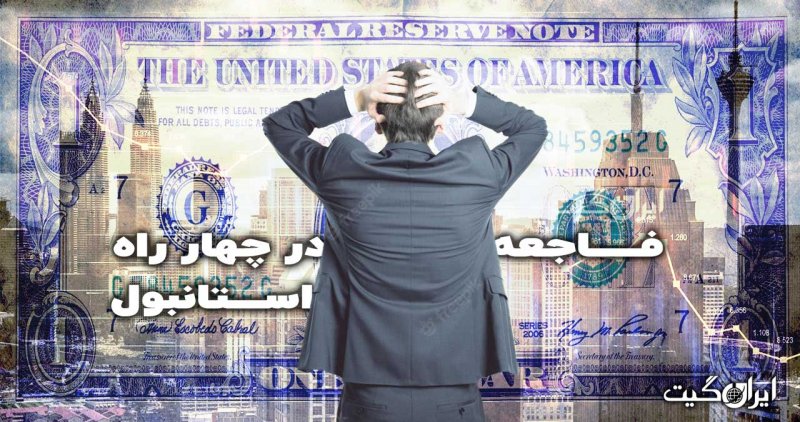Disaster at Istanbul Crossroad
What Did Raisi Do with the National Currency
According to Iran Gate, the fluctuations in the exchange rate during more than 18 months of Ebrahim Raisi’s presidency have been so severe that the head of the thirteenth government holds the record for the weakest performance among all presidents in the currency market.
The Rial had never experienced such conditions under any government. In fact, no government’s performance in the first 18 months has caused such a heavy and unprecedented drop in the value of the national currency against foreign currencies.
When Ebrahim Raisi took over the government from Hassan Rouhani in the summer of 2021, the dollar rate in the free market was about 24,000 tomans. However, by the start of December 2022, the price of the US dollar entered the 37,000 toman range, setting a historic record.
In other words, Ebrahim Raisi has lost more than half of the national currency’s value in just 18 months. More precise calculations indicate a more than 55% decrease in the value of the Rial against each US dollar. Meanwhile, no government has recorded such a concerning record in 18 months.
Market Manipulation Was Also Ineffective
Government interventions in the currency market are a tradition that has been accepted and considered normal in past periods. This tradition was even present in pre-revolution governments and is not a novel issue. However, the point we are witnessing these days is the occurrence of a disaster in the currency market despite extensive interventions by the central bank, the government, the judiciary, and the police in the market.
In other words, Ebrahim Raisi, considering his background, has created a security atmosphere in the currency market. Although these actions, alongside widespread currency flooding in the market, could not alleviate the myriad issues of the Rial, the arrests and crackdowns in the currency market were also not effective, and the rising trend of the dollar price in the free market continued.
Controlling the Market by Censoring Prices
Evidence suggests a discrepancy of about 1,000 tomans between the free market price and the official references announcing the dollar rate. Some observations also indicate that domestic media are being pressured to publish rates lower than the real dollar price. News available to Iran Gate shows that the government and the central bank are trying to create confusion among market participants by releasing unrealistic prices.
Although the result of these actions is entirely clear by looking at the currency price boards at Ferdowsi Square and Istanbul Crossroad, it seems that the thirteenth government and the Central Bank of Saleh Abadi know no other way than intervening in the market. Meanwhile, economists unanimously agree on the destructive nature of such an approach in the country’s economic context.
Nothing Else Was Expected from Saleh Abadi
The duty of central banks worldwide is to preserve the value of the national currency. What threatens the value of any country’s national currency is the phenomenon of inflation, which acts like an incurable cancer for any economy. Therefore, the central bank institution defines its primary duty as preserving and safeguarding the value of the national currency and tries to control inflation as much as possible.
However, in Iran, the central bank has been unable to execute this obvious duty, and chronic inflation has gripped Iran’s economy so tightly that it has intertwined citizens’ lives with heavy double-digit inflation over the past five decades.
Since the day Ali Saleh Abadi took the chairmanship of the central bank, not only has the situation not improved, but this institution has turned into a government loudspeaker. A government to which Saleh Abadi considers himself indebted sees the central bank as a lever for artificial exchange rate control and price setting. This approach will not lead anywhere and has worsened the situation.
In fact, instead of taking steps to control inflation, the government and the central bank are trying to compress the price spring by injecting dollars into the currency market. Meanwhile, the country is in dire need of cash reserves and is facing shortages, but the government is essentially burning through resources with these actions, ultimately having no clear or positive impact on people’s lives.
For this reason, economists believe that the current team managing the central bank lacks the ability to take fundamental and basic actions. That’s why it’s said that neither Ali Saleh Abadi nor his associates are capable of controlling inflation, nor has it been a strategy the government has been willing to implement. In other words, until an independent person takes the helm at the central bank, the situation will remain unchanged, and Ali Saleh Abadi is a clear example of this.
- Iran’s Future in the Fog of Doubt
- No Hope for the Future of Iran’s Economy – Part 1
- Daily Record-Breaking of Dollar Rates
- When Will the Dollar Reach 40,000 Tomans?

